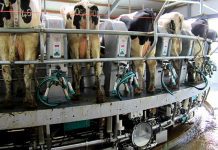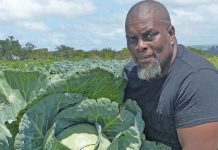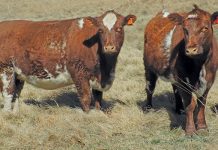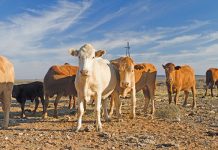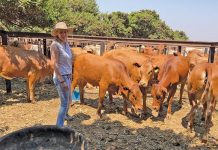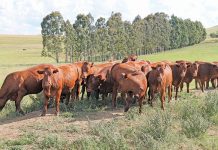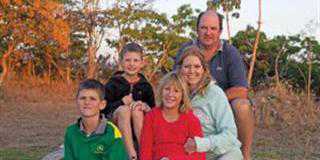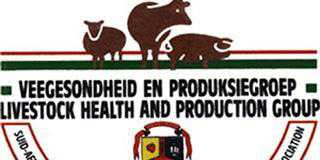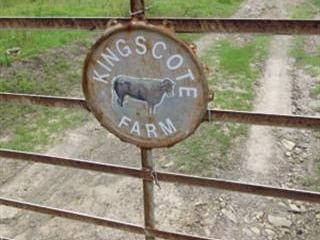
Zandisile Maswana (71) began his working life as a herdboy near Peddie in the 1950s. Decades of hard work followed before he was able to buy the 550ha Kingscote Farm in 1994. “Building this herd has taken me my whole life and I am really proud of my cattle,” says Zandisile, who runs 140 cattle in a herd of Brahman-type cows and Braford-type bulls.
A self-made man, Zandisile has received no state support in his beef farming venture. “What helped me was to work harder for myself to better my tomorrow,” he explains. “I have always gone to commercial stockmen for advice on my cattle, and they have given generously of their time and knowledge.”
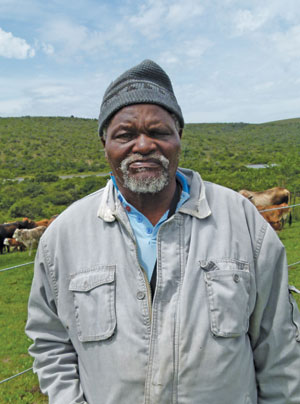
Zandisile Maswana
From herd boy to head honcho
Born in the communal area of Peddie in the former Ciskei, Zandisile tended his family’s cattle as a young boy. The duties of this young stockman, including the regular dipping of the cattle, took a toll on his education. “There were times I had to ask the principal if I could leave school early so that I could go and collect the animals. Sometimes I would wait all night in the queue at the local dipping station to make sure the cattle were dipped the following morning.”
He passed grade eight before leaving for Port Elizabeth in the late 1950s. Here, he worked at jobs that would give him the skills to launch his entrepreneurial career, and eventually secure his own land and cattle. Soon after arriving in the city he was employed at a grocery/hardware store where he was responsible for the bulk weighing of food and was later trained to manage the division. Years later, after a stint at the harbour, loading and offloading ships, he was offered a job with the Port Elizabeth Municipality.
“At the municipality I was promoted to bricklayer and then studied and received a diploma in 1972,” he says. “Then I had a skill and I worked harder because I knew it was important.” By the late 1970s, drawing on his skills and his experience, he operated a vibrant building business in the former Transkei and later back home in the former Ciskei.
The building business provided the financial backing for Zandisile to open a butchery in Peddie. By the late 1980s he began toying with the idea of finding land to serve as a holding station for slaughter stock and to start beef farming. Eventually in 1994 he bought Kingscote near the Keiskamma River from local farmer and friend Sizwe Manjezi.
Hybrid vigour
Sizwe and a number of white commercial farmers have played a significant role in Zandisile’s beef enterprise. The first cattle to be brought onto Kingscote were 12 Bonsmara heifers and a bull he bought from Sizwe. Later, he added 36 commercial cross-bred cows. The idea of introducing Brahman bulls to his herd goes back to a chance meeting with a Free State beef farmer.

Brahman-type cows with their Braford-type bull on the farm Kingscote near Hamburg in the former Ciskei. The veld type is defined by Albany thicket and mixed thornveld.
“I was in the Free State and I saw a white farmer moving cattle along the national road,” he recalls. “I asked him what they were and he said they were Simmentaler/Brahman crosses. There and then I decided I would crossbreed my cattle.” The power of hybrid vigour supplied by his Brahman bulls led him to Braford-type bulls in 2007. He has never looked back and believes Braford bulls bring better conformation to calves that cope effectively in the often extremely hot and humid environment of Kingscote.
He stresses that spending money on quality genetics is essential to improve the productive capabilities of his future cows, and the quality of his weaner crop. At the annual production sale of John and JJ Park near Bedford in 2011 he bought a Braford-type bull for R56 000. At this year’s sale, he paid R36 000 for another bull. “It is important to get good genetics into your herd and to use a cross-breeding programme,” he insists. “If you don’t cross you don’t get the same growth in your calves and your size and quality decreases.”
Farming his cattle independently on Kingscote is critical for the general health of his herd, says Zandisile. He feels that his worst decision was to allow communal livestock onto his land. “When I still had my butchery, I bought cattle from the communal areas, where they don’t dip often, and kept them on the farm. Some had redwater and died here, others spread the disease.”
Quality weaners off veld
The beef operation runs on commercial principles and has, since its inception, been independent of the building and butchery enterprises. Zandisile believes that income must be generated from the land. “Land must pay you, and for this to happen a lot of hard work is needed,” he explains. “It is not wise to subsidise one business with another business; if a business is not functioning properly, you must get rid of it.”
Success on Kingscote farm is based on medium- to large-framed Brahman-type cows that produce plenty of milk to boost calf growth and produce quality weaners. The cows are run on sweetveld without feed or licks. Weaners are marketed at 7 months to 8 months when they weigh an average of between 280kg and 300kg. Breeding females are mated in three single sire herds to calve from September to December.

Cows that milk well for efficient weaner production are selected.
The herd’s average calving percentage last season was 75%. Replacement heifers are mated for the first time at 30 months and all females that don’t calve are culled. Kingscote is currently fully stocked. A group of about 150 Boer goats utilise the available browse. More land is needed to expand the Maswana beef operation.
Looking back on his farming career he says that one of the most important facts he has had to accept about commercial beef farming is its long-term nature. “I have been working with these cattle since 1994,” he says. “I have been doing this and that to get them to the standard that they are now – it is a long-term investment.”
Contact Zandisile Maswana on 082 952 9727

